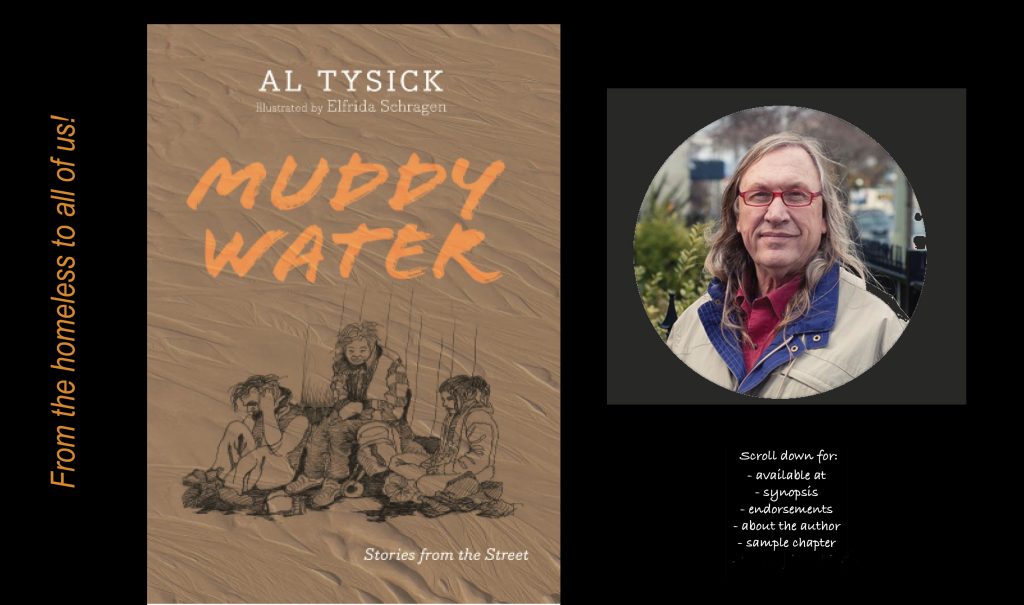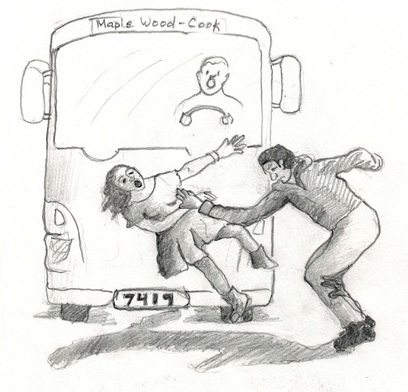Available at:
Wipf & Stock Publishers (use discount code CONF40)
amazon.ca | amazon.com | bookshop.org
Munrobooks, Victoria I Bolenbooks, Victoria I Russellbooks, Victoria I
United Church Bookstore
Link to a recent interview of Rev. Al by Grant McKenzie from Our Place”:
https://broadviewunited.org/celebrations/
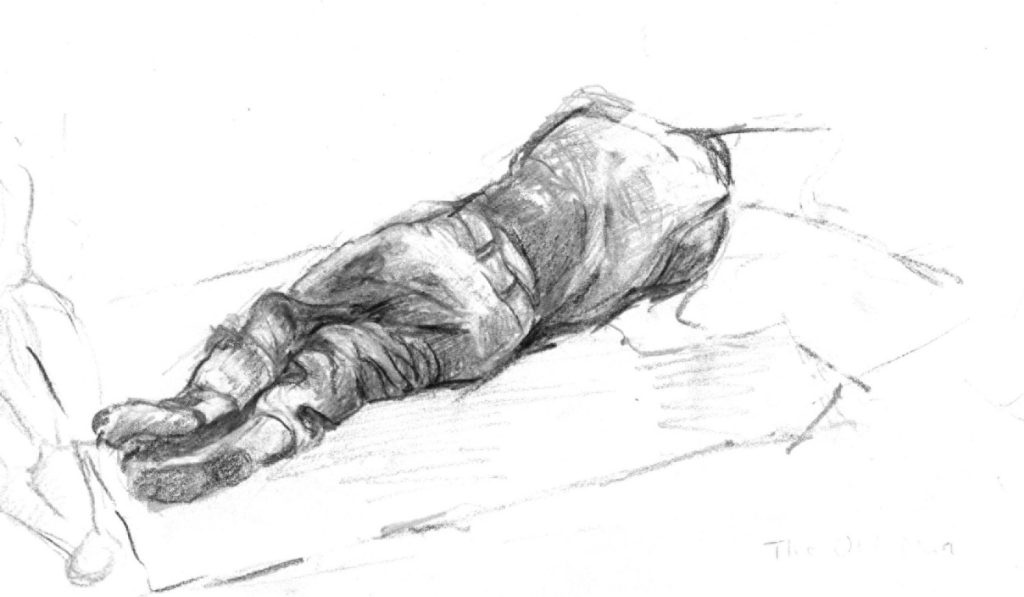
SYNOPSIS
A lifetime on Canada’s streets results in vivid stories that range from despair to humour to hope. Voices of street people are seldom found in print, yet homelessness, addiction, mental illness, poverty, and other causal factors are major issues today, making these stories timely.
“Muddy Water” is about understanding women and men who live on our streets. The seventy-two chapters are grouped into five sections: “Muddy Water”, “Dealing with Death”, “Church vs. Street”, “Articles and Speeches”, and “Holy Rage”. As a minister of the United Church of Canada, the author covers the entire gamut of human experience and emotions in this unique volume.
Evocative drawings by artist Elfrida Schragen enhance and extend the informal style of the text, weaving art into street life.
Significant references to the long-detrimental effects of Canada’s residential schools highlight why so many street people have Indigenous heritage. The often positive and powerful aspects of that heritage are also featured.
This book helps readers to understand why must free ourselves from every vestige of colonialism, racism, sexism, and any other aspect of our institutions that enable inequality, injustice, and poverty. We must move from living in the ego to living for all our citizens.
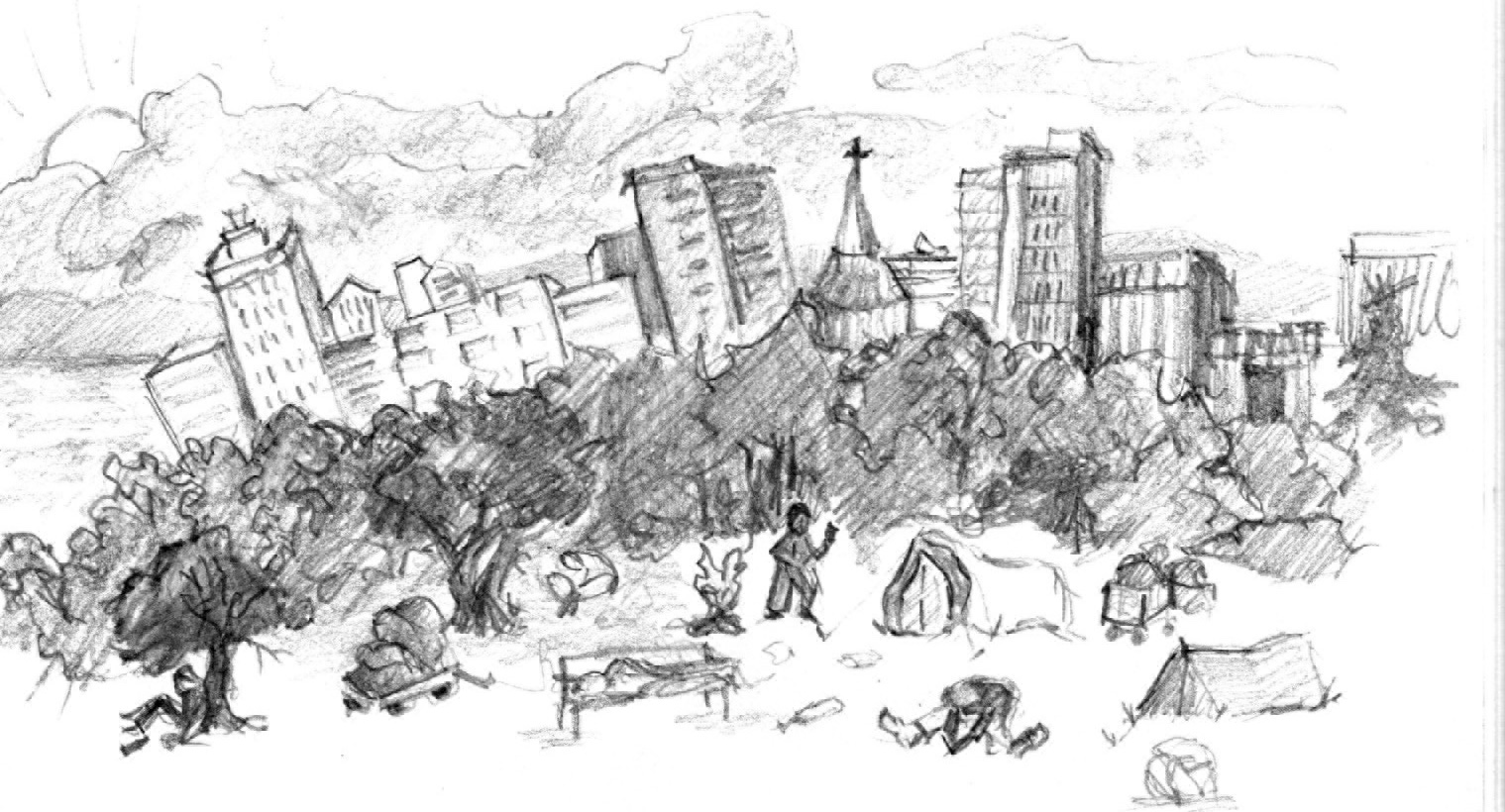
ENDORSEMENTS
“This book gives testimony to the outreach and love given by Rev. Al Tysick over many years to his extended family: the street community of Victoria. Each vignette provides insight into the troubled lives of ‘lost souls’ we see daily on the streets of our cities. It also offers us a portrait of Christian dedication in the selfless service of one man to his community. This is a recommended read for anyone interested in one of the most pressing issues of our time.”
—Dennis M. Anholt, retired professor, University of Victoria
“Rev. Al has a way of seeing the essence of the divine in every human. This book is a testimony to his deeply spiritual connection to humanity in all our varied and not always pretty manifestations.”
—Harry Brechner, rabbi, Congregation Emanu-El
“Muddy Water is a must-read. The stories have substance; they challenge the church and all of us to better understand the men and women living on the streets, since their stories are intertwined with ours. As a First Nations leader, I thank Rev. Allen Tysick for bringing these stories to life.”
—George Jr. Hunt, Kwa-guilth artist and elder
“Informed by the author’s Christian faith, suffused with ecumenical compassion, and leavened with humor, this book is a testament to resilience, strength, wisdom and humanity in the face of suffering. An entertaining read, it is also a document of redemption.”
—Gabor Maté, author of “The Myth of Normal: Trauma, Illness and Healing in a Toxic
Culture”
“Muddy Water takes us to the streets with Rev. Al as he walks beside those who live on the margins of our society. I loved this collection of modern- day parables. It is street scripture that will touch your heart and open your mind, as it pricks your conscience. This should be required reading for all politicians. It’s storytelling at its best!”
—Jo-Ann Roberts, author of “Storm the Ballot Box: Starting a Voting Revolution before It’s Too Late”
“You will want to reach in and embrace Rev. Al’s street family as your own. You can’t read this raw and honest portrayal of street ministry without being touched by the beauty and wisdom of individuals most of us ignore. At once funny, heartbreaking, and infuriating, you will run the gamut of human emotions as you turn each page. This book is a haunting eye-opener and should be required reading for everyone.”
—Silvia Fiorita Smith, author of “Figs beneath the Snow: Unearthing the Poetry”
“Rev. Al offers a unique window into the lives of people living on the street. For him, the homeless are people to love and embrace—not a problem to be solved. Prepare to be touched and transformed.”
—Lee Hanes, retired social worker
“Rev. Al, as he is fondly called, is a powerful storyteller! In this lifetime of street ministry, he has penetrated through muddy waters as though ‘through a glass darkly’ and peers into the heart and soul of the human person. Al reaches into the depths of human suffering endured by persons living on the street, inviting and challenging us to embrace their suffering as our own. Al leads us to see with the heart, to see with God’s eyes, and to humbly sit at the table and listen to wisdom from the street. At Rev. Al’s table, there is no us and them—there is only shared pain, joy, agony and hope.”
—Joyce Harris, SSA, canonical co-leader, Roman Catholic Sisters of St. Ann
“Muddy Water is a true testament to the love and compassion of its writer, Rev. Al Tysick. He earned the trust and respect of so many in our community and beyond, for the person he is and for the work he has done. During my twenty years as a Victoria city councilor, I learned from him. Every person has their own story if we only take the time to listen. Muddy Water is essential reading for anyone who wants to better understand the issue of homelessness.”
—Charlayne Thornton-Joe, retired Victoria city councilor.
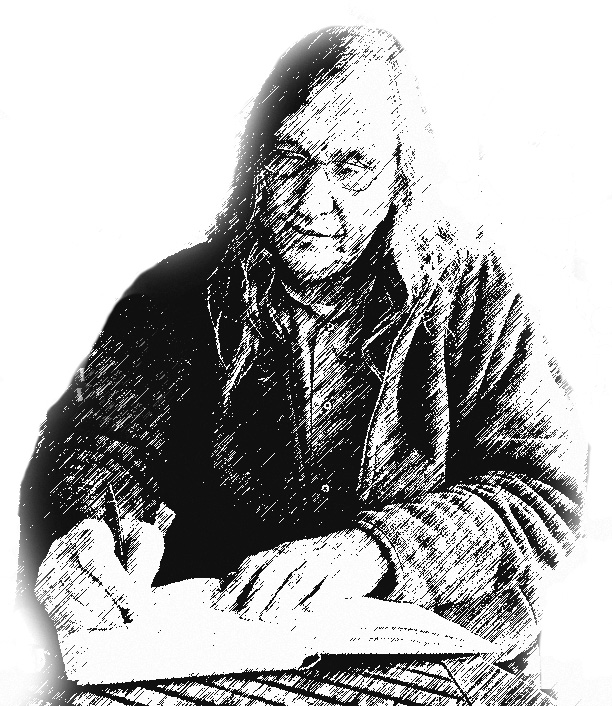
ABOUT THE AUTHOR
Contact:
My father was a violent alcoholic who beat me often as a child, and I came to hate him. Growing up on the street, I would rather fight than eat. One day I got into a fight with a bigger older boy, and when he was on the ground bleeding, someone pulled me off him. I saw him dazed and bloodied, and I realized that I could have killed him. I was becoming my father! I cried as I asked him to forgive me. That day, I put down my fist and began to use my brain.
Education was a struggle since I suffer from dyslexia. Despite that, I graduated from Carlton University with a BSc., initially working at the National Research Council in the mechanical engineering department for five years.
Feeling a call to be ordained in the church, at night school I received a BA in religious studies. I then went to McGill University for a B.Th., later being ordained by the United Church of Canada. I left my paid ministry with the fine people of Hulbert Valley and Brinston United Churches, south of Ottawa near the St. Lawrence River, after ten years of service there. There was a pocket of rural poverty located in nearby Dundela, such as I had never seen before, and it inspired a dramatic change.
On July 1, 1989, The House of Lazarus was created in a Dundela church that had been abandoned for at least 20 years. The building structure was sound, but it had no water, heat, electricity, nor a washroom, and I had no salary. Three women were the foundation of the House of Lazarus: Melba Markell, Myra Fawcett, and Beth McGrath. I was fed at the tables of the poor; I was taken care of by the poor. I went to minister to them, and they ministered to my St. Bernard dog Cesar and to me. I came to educate; then they educated me. Among other activities, I helped the community build 32 homes.
After five years there, I was called by the United Church of Canada to be the Executive Director of The Open Door, a ministry of the Victoria Presbytery among the homeless, due to the retirement of Lawrence Moon. At the Open Door and its successor, Our Place, I continued living out my calling, including subsequent work with the Victoria Dandelion Society. The stories you’ll find in this book largely come from that profound time in the city of Victoria, British Columbia, Canada.
The Open Door was a drop-in center whose mission statement read: “The Open Door offers unconditional love in a nonjudgmental way for all.” When I read that statement, I knew that it was God calling me in full joy to give my life to this ministry. Like the House of Lazarus, I came to minister to the poor, and the poor ministered to me. I came to give my life to them, and they gave their lives to me.
Nearby was the Upper Room, a ministry of the combined Presbyterian and Anglican churches that fed and housed the homeless every day. The Executive Director was Rev. David Stewart. He and I came to have a sincere respect for one another as we became close friends and shared laughter, tears, and deep faith. That friendship and the courage of both boards merged into Our Place: a multi-purpose service to the homeless. I became the Executive Director when David reached 65.
At my own 65 years young, another call came from a modern-day prophet named Vince, an Inuit who lived in a doorway on Fort Street for most of his adult life. That day he was sitting cross-legged, and I sat beside him. An older lady passed by, and I put out my empty hand. She put 50 cents into it and walked on. I smiled and gave the coins to Vince, who held the money in the palm of his hand, staring at it for the longest time. Finally, he looked into my eyes.
“Rev, it’s time you leave Our Place and come to the street to begin your holy calling.”
Without another word, he got to his feet and walked away.
That day I put together my 3-month notice of resignation and drove it to the home of Dr. Dennis Anholt, Chair of the Our Place Board. I then went to see my good friend Ned Easton and asked him if he’d help me form a new street-oriented organization called the Dandelion Society. Without question, he responded, “It’s about time—I start today.”
Ned and I called capable people to form the first board of the Victoria Dandelion Society: Anna Stella Jazlowiecki, Ned Easton (Chair), E. Al Crippen, Paul Jenkins, Pat Vickers, Marcus Oppenheimer, Mike Nelson, Arthur Wright. I also have special memories of the late Ann Cameron, who passed away during her time as Chair of the board.
So began another ministry in faith, initially without a salary.
Along the way, I married my wonderful wife, Mary Hanes. Actually, I married her twice: once as a minister, and once after she became a widow! We have three grown children and some delightful grandchildren, too. I’m grateful for the balance and inspiration that they constantly provide.
This book is about faith and a new vision of the church. It comes from the prophetic voices of the poor outside the church walls, who are angels of a different sort. Thanks go out to my street family for having the courage to push me into the muddy water of faith!
The following Addendum is from some of Al’s friends, who want readers to know a few other things.
Education also includes:
Certifications: Marriage Counseling, Drug and Alcohol, Anger ManageXment, Suicide Prevention.
Honorary BA, School of Social Work, University of Victoria.
Other activities:
Leadership (often as Founder): Lateral Thinkers; Legal Aid Services in Cornwall, Ontario; Seaway Valley Presbytery; Council of Greater Victoria Coalition to End Homelessness; Victoria Downtown Service Providers; Co-convenor of United Church of Canada national Energy from the Edges conference, with Fay Wakeling and Barry Morris.
Other honors:
Citizen of the Year, Matilde Township, Ontario; Citizen of the Year, Victoria, British Columbia; Mayor’s Medal Award, City of Victoria, British Columbia; Queen’s Jubilee Medal; Recognized by the Songhees First Nation; Friend of the Ahousaht First Nation; Queen Elizabeth II’s Platinum Jubilee Medal (2022).
SAMPLE CHAPTER
Harley’s Untimely Death
Barry Morris had sent me an email. He is a lifetime friend who became a mentor. I had asked for his counsel a few days before, and he sent me the theological thought I needed. Barry is a theologian. Like me, he’s struggled with theology at the deepest levels throughout his ministry at the Long- house in Vancouver.
I was doing my usual walkabout, waking up the homeless, giving them coffee, water, and doughnuts, but most importantly I was profoundly pres- ent with them. As Barry had said in his email, my presence has been the heartbeat of my ministry on the street.
This morning I arrived at 4:30 a.m., and I could hear crying across the street on the corner of Pandora and Quadra. Ironically, the addicts, the sick, and the forgotten sleep there every night on the veranda of the Ministry of Housing and Social Development. They arrive after dark. They are unwanted and feared by many, but they congregate there and find a place where they’re welcomed by the others in similar circumstances. However, the scene is one of chaos, filth, and death. The church and society look upon them with dis- gust and judgment, offering them only the police and ambulances.
As I approached them, I heard loud sobbing. Screams of anguish were coming from Rachel, who was weeping for her friend, Harley. Her crying wouldn’t stop, and she refused to be comforted, because Harley had died, and she was the only family Rachel had. Harley had been pushed in front of a bus by two men who’d been drinking all night at a local bar. Seeing me, she became angrier, screaming,
“Why did God take her? He should have taken me. I am so close to death I have tasted it. Why did he not take me”?
I sat beside her in the hurricane of her pain and listened; sometimes, silence is all I have to offer.
Many of her friends grabbed me, weeping and needing comfort. One question lingered on their minds: How could God let this happen?
I continued to minister to them all morning, listening to their anger and watching their tears.
“Where is God in all of this”? They kept asking. I didn’t give them any answers because the same question was on my mind.
But I was also wondering, where are we in all this poverty we’ve created?
